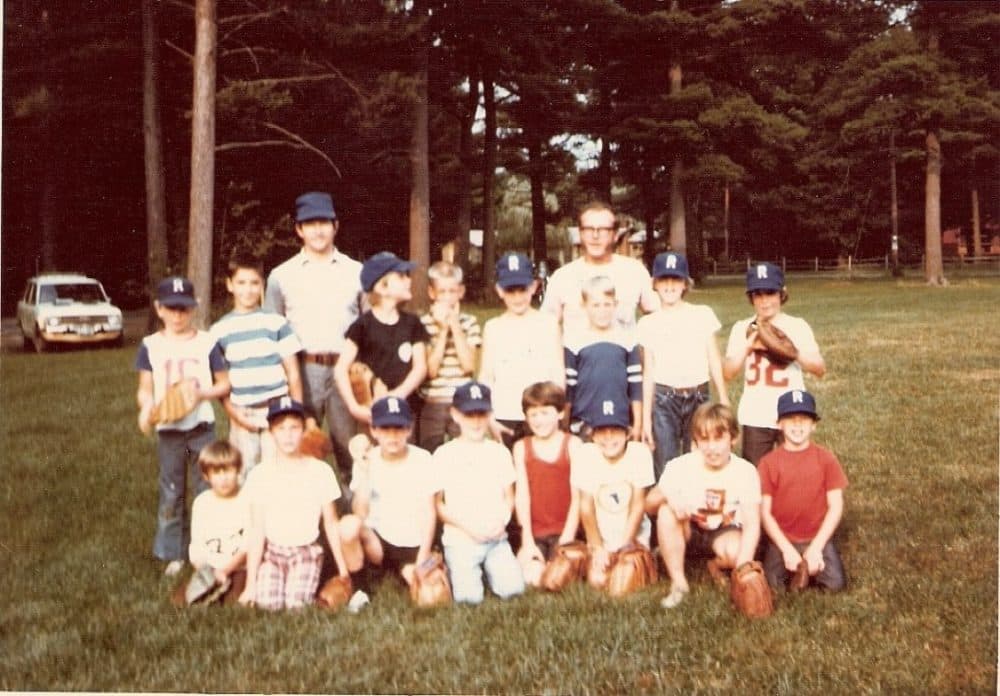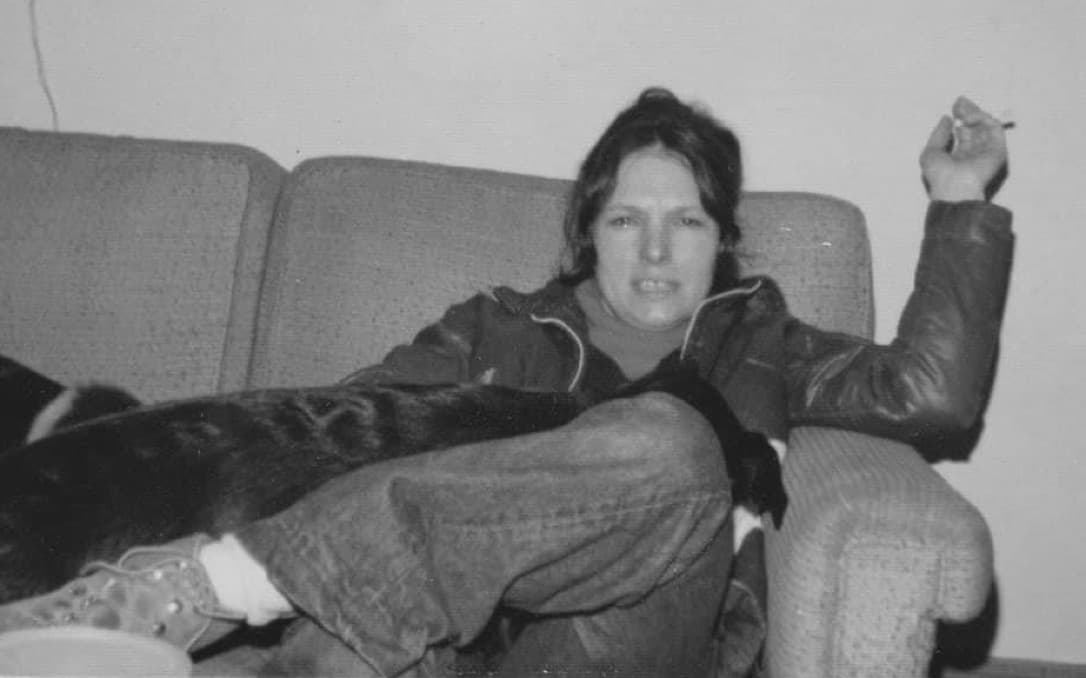Advertisement
Commentary
Watching the Red Sox. Looking for my mom

The other day, as I sat contemplating the Red Sox home opener at Fenway Park and divined the team's chances this year, I looked for my mother. And there she was, as always: on the wall, in the blurry, black and white photograph above my computer, hovering in the eternal present tense of the past, looking back at me.
Hey, kiddo.
In the photo, which must be from the mid-1970s, my mother wears a ski jacket and hiking boots. A dog is draped across her lap, and a cigarette dangles artfully from the hand of her left arm. She may as well have a baseball in her hand, not a smoke. Her arm and wrist look cocked and ready to fire a fastball at me. My mother had a good baseball arm. She also helped coach my Little League team.
Which explains why my baseball reveries are inexorably linked to my mother. Major League Baseball may be good at making money, but it's also adept at making memories. Unlike other pro sports like football or hockey, nearly everyone, at some time, plays baseball or softball, no matter how uncoordinated or sedentary. It's a simple game: Throw, catch, hit, run. America’s favorite pastime is personal, and tinged with nostalgia. The old-timey sport feels stuck in the past, and our collective pasts, in a good way.
For me, baseball is connected to a time when, as a shy, insecure kid, I craved admiration, purpose and affection. I wanted agency, and power, despite my desperate fear of the spotlight. Luckily for me, baseball tells a rudimentary story of game-winning heroics and derring-do, over nine chapters, every night from spring to fall.

I imagine, without any evidence, that the photo of my mom was taken in October of 1975, some 47 years ago — the same year the Sox battled the Cincinnati Reds in the World Series (made famous by catcher Carlton Fisk, in Game 6, who waved his 12th inning, game-winning home run fair, like a conjurer casting a spell). That same year I was 9, in the fourth grade. My mom and I probably stayed up to watch the series, beamed from Boston to the antenna of our sketchy New Hampshire TV set. The next morning, I'd dutifully read the box scores in the Globe.
Earlier that summer, someone had given mom a T-shirt emblazoned with fuzzy black letters spelling out “SUPER ASSISTANT COACH.” Our Seacoast Little League team — the Royals (sadly, not the Sox) — had made it to the championship game.
I had played for the Royals for four seasons running. As I grew in size, skill and experience, I became less hapless, and moved from benchwarmer to reliable starter. That particular season, when mom coached, I remember wearing “19,” the same number as Fred Lynn, the BoSox star center fielder I worshiped, who would go on to win Rookie of the Year and MVP. I had wanted to be him. I had even assumed his batting stance.
Advertisement
Now at my desk, as I thought of that championship game versus the hated Tigers — hated for no other reason than the need for an adversary — I tried to recreate my heroic role. It must have been a close game, probably tied in the bottom of the 6th inning. (In Little League’s shortened games, this was the equivalent of the bottom of the 9th.) The Royals were at bat. No one on base. I was up next. The game’s fate was in my hands.
Hero time.
I stepped up to the plate. I took some practice swings, channeling Lynn’s wizardry. Like a shaman wearing leopard or bison skin, I could be as powerful as my idol, as long as I wore #19, I must have believed.
Baseball is connected to a time when, as a shy, insecure kid, I craved admiration, purpose and affection.
“No battah … no battah … SWING!” the other team chanted from the dugout.
The first pitch: a ball. The second pitch: a ball.
I scuffed some dirt with my Keds, readjusted my grip on the bat, and settled back into the batter’s box, just like Lynn would do.
The third pitch arrived on a cloud of silence. I clocked it. I, my teammates, the coach, mom, we all watched the ball sail over the center-field fence. Home run. Game over.
I rounded the bases, ecstatic. I shot a glance at my mom, who I picture now in my mind looking back at her boy with admiration, thinking, Job well done, pumpkin head. She gave me a hug as I crossed the plate before my team crushed me in a pig pile.
The charm of Lynn’s #19 had worked. Or did I hold the power? I wanted that rush to last. Those feelings almost did, before they didn't.
Of course, the Red Sox lost the World Series that year, in a heart-wrenching three games to four. And here's the thing — the doubt, the fear, the question: As I look back, perhaps the game-winning demigod wasn’t me. Perhaps that’s just a story I’ve concocted to preserve that victory, adding my game-winning conquest to sweeten the tale. Perhaps I have wanted that happy feeling of agency and purpose and love, of being needed, to last for years. I needed to remember those events that way, to weather the years ahead.
My mom isn’t around to verify the truth. She would be nearly destroyed three years later, in 1978, by a brain aneurysm, when I was 12. I could not save the day. No one could.
Why are these emotions and memories rising for me again now? Is it the start of the Red Sox season? Or because two years of the pandemic seem to have robbed me, and many others, of our agency? Or because, at age 55, I see fewer opportunities to save the day?
I don't fully know. But I know what I've missed, all these years without mom's influence, counsel and affection.
Will I ever be that powerful, that able to be the hero of my own story ever again?
Which is why I keep that photo of her, looking back at me, above my desk. Which is why I look into her eyes. Which is why I ask her, “Will I ever be that powerful, that able to be the hero of my own story ever again?”
Which is why I say to her, “I sure could use your advice on my swing, mom. Help me keep my eye on the ball. Should I wait for my pitch or swing for the fences? When do I hold up, and when do I steal? When do I round third and head for home? I can't hear you cheering me on."
Also: "While I'm at it, could you please work some magic for this year’s Sox?"
